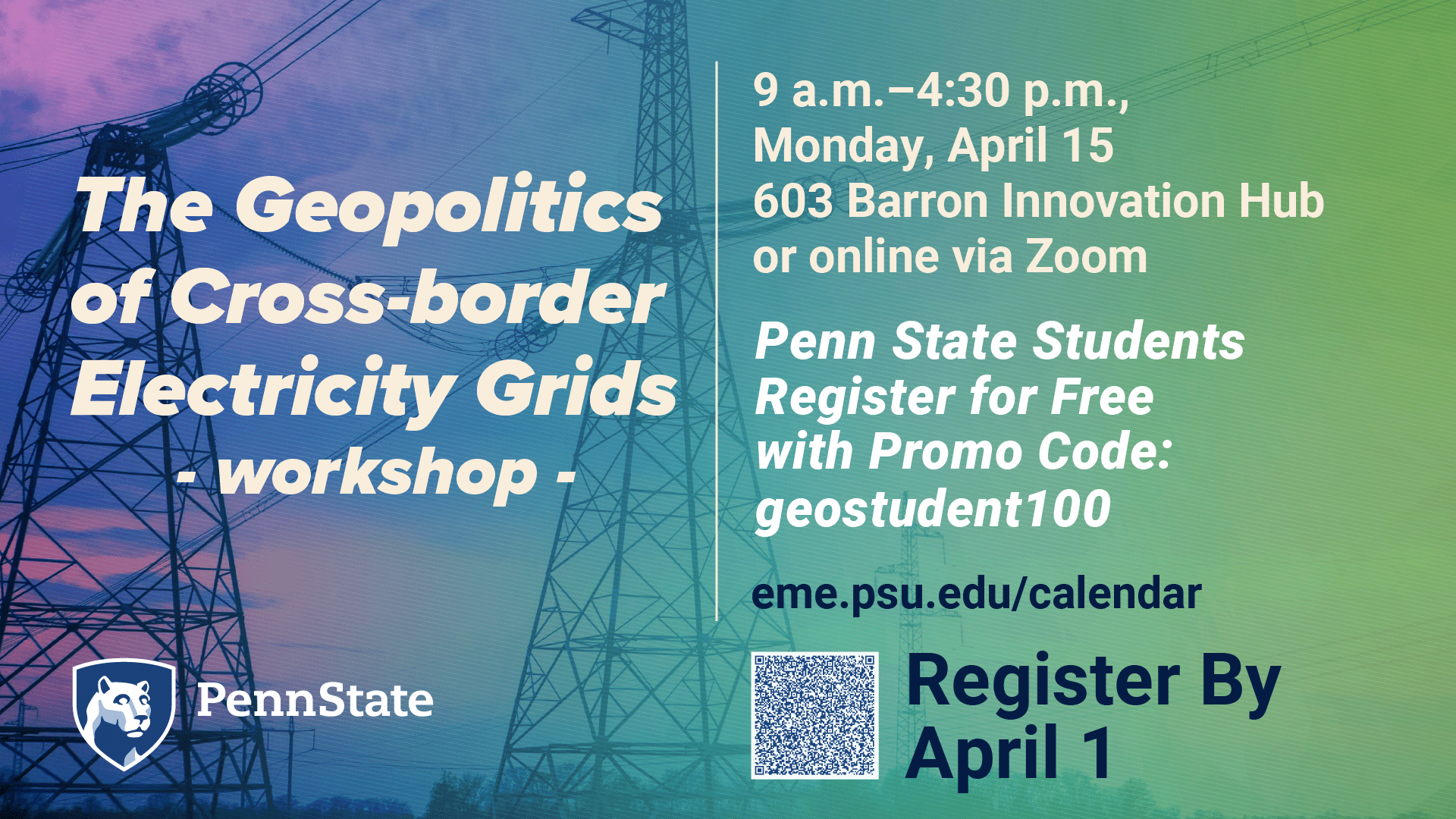

The Geopolitics of Cross-border Electricity Grids Workshop
April 15, 2024 @ 9:00 am - 4:30 pm
Penn State will host a workshop on the emerging geopolitics of electricity grids and trade at the University Park campus on April 15, 2024. Panelists include:
- Margarita Balmaceda, Seton Hall University;
- Alvin Camba, University of Denver;
- Ira Joseph, Columbia University;
- Chloé Le Coq, University Paris Panthéon-Assas;
- David Mares, UC San Diego;
- Anna Mikulska, Science and Technology Policy Institute;
- Joseph Webster, Atlantic Council; and
- Abay Yimere, Tufts University.
Songying Fang (Rice University), Amy Myers Jaffe (New York University), Ted Loch-Temzelides (Rice University) and Chiara Lo Prete (Penn State) will moderate the event. The workshop will be hosted in person at 603 Barron Innovation Hub and online via Zoom. A detailed agenda will follow.
Registration is $10. Penn State students can register for free with promo code geostudent100.
This event is co-sponsored by the Center for Security Research and Education, the John and Willie Leone Family Department of Energy and Mineral Engineering, and the Center for Energy Law and Policy.
Cross-border electricity interconnections are on the rise because they can be used to smooth out short-term grid stability issues caused by increasing amounts of intermittent power and improve cost-efficient dispatching of electricity across large geographic areas. However, increased international electricity trade can also introduce geopolitical factors into electricity grids, including the threat of electricity coercion. Russia’s repeated attacks on the electricity system of Ukraine has raised the level of concern on this new geopolitical energy challenge. The stakes will be high as the world moves to a more electrified world.
Hosting electricity trading hubs and thereby serving as technical leadership for electric infrastructure management and trade can bring geopolitical benefits, as recently recognized by China with its establishment of the Global Energy Interconnection Development and Cooperation Organization. On the flip side, countries who could threaten such hubs could also derive geopolitical benefits. The United States must consider how the increased role of energy trade “by wire” changes its ability to defend global energy security, both via its energy exports and through its leadership role in key regional alliance systems.
